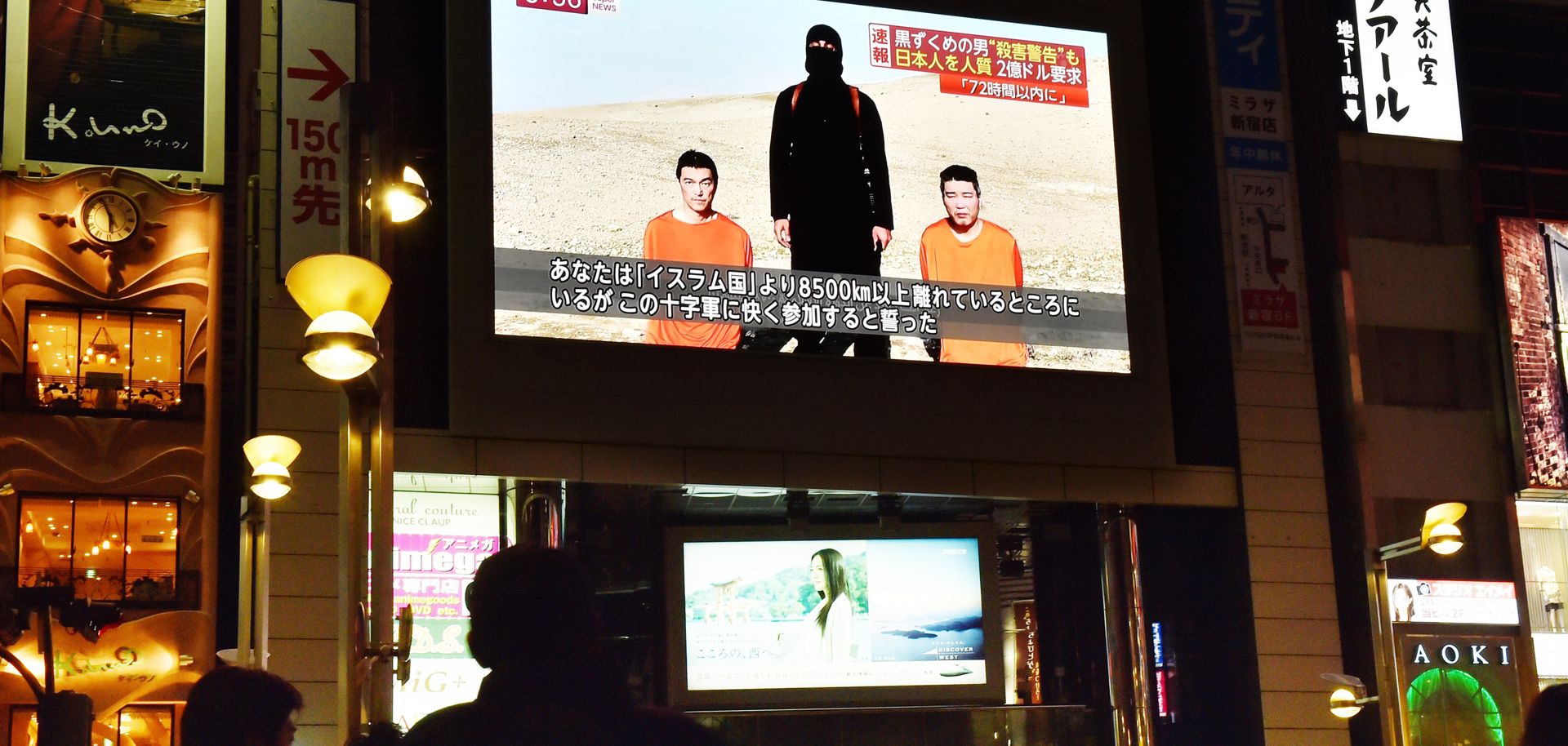ASSESSMENTS
Islamic State Kidnapping Shows Japan's Vulnerabilities Abroad
Jan 21, 2015 | 23:58 GMT

(YOSHIKAZU TSUNO/AFP/Getty Images)
Summary
On Jan. 20, the Islamic State released a video showing a black-clad spokesman threatening to kill two hostages. The imagery and scenario were familiar — the key difference being that the hostages were both Japanese nationals and the kidnappers demanded that the Japanese government pay a $200 million ransom within 72 hours. Although the Islamic State has held both hostages for months, the release of the video was timed to coincide with Japanese Prime Minister Shinzo Abe's six-day tour of the Middle East and featured footage of the politician as an introduction. Abe's trip began in Egypt on Jan. 17 with a pledge of $200 million in Japanese assistance for countries fighting the Islamic State. The video drew a clear parallel to this pledge, with the spokesman saying the ransom was set at $200 million because Japan planned to give $100 million to kill Muslim women and children and $100 million to train fighters against the Islamic State.
Abe's tour was not a typical Japanese foray into the Middle East. His schedule included Egypt, Jordan, Lebanon, Israel and the Palestinian territories. Japan's objective was to improve defense ties in the region and to lend support to U.S.-led efforts to further Western interests in the region. Japan's involvement in these efforts is just one part of the nation's shift toward greater international involvement and reflects the additional exposure Tokyo faces as it pursues this goal.
Subscribe Now
SubscribeAlready have an account?
